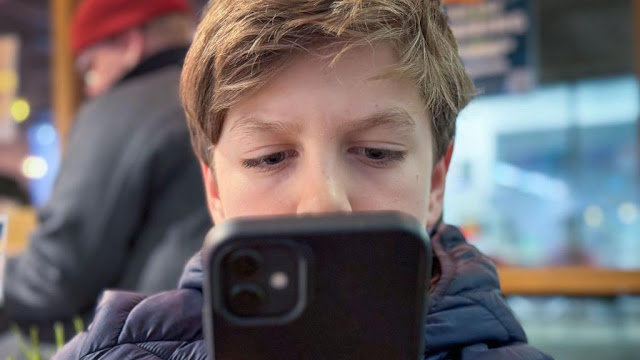In recent years, TikTok has emerged as one of the most popular social media platforms among teenagers, boasting over a billion active users globally. However, this explosive growth has not come without significant scrutiny. A recent lawsuit against TikTok alleges that the app has contributed to a decline in the mental health of its adolescent users, prompting a heated debate about the responsibility of social media companies in protecting young people.
The Allegations
The lawsuit, filed by several parents of teenage users, claims that TikTok's algorithms promote harmful content, including videos related to eating disorders, self-harm, and suicidal ideation. The parents argue that the platform's addictive nature exacerbates mental health issues among teens, leading to increased anxiety, depression, and body image concerns.
Experts have pointed out that the rapid-fire nature of TikTok’s content, designed to keep users engaged, can create a feedback loop where negative emotions and harmful behaviors are normalized. For instance, videos glorifying unhealthy lifestyles can easily go viral, reaching impressionable young minds who may not have the critical tools to process such information.
The Impact on Mental Health
Research supports the concerns raised in the lawsuit. Numerous studies have indicated a correlation between heavy social media use and mental health issues in teens. A 2021 study published in the journal *JAMA Psychiatry* found that adolescents who spent more than three hours a day on social media were at a higher risk of mental health disorders. The study highlighted how exposure to negative online content could lead to increased feelings of loneliness, anxiety, and depression.
TikTok's format—short, looping videos that are easy to consume—can amplify this effect. The app's algorithm is known for its ability to quickly identify user preferences, leading to a personalized feed that can trap users in a cycle of content that may negatively impact their mental well-being.
TikTok’s Response
In response to the lawsuit, TikTok has emphasized its commitment to user safety and mental health. The platform has implemented various measures aimed at promoting positive content and discouraging harmful behaviors. Features like screen time management tools, mental health resources, and content moderation efforts have been introduced in an attempt to mitigate the adverse effects of the app.
TikTok has also collaborated with mental health organizations to raise awareness about issues such as body positivity and mental wellness. However, critics argue that these measures are insufficient, given the app’s inherent design, which prioritizes engagement over user well-being.
The Broader Conversation
The lawsuit against TikTok raises important questions about the accountability of social media platforms in protecting young users. As mental health issues continue to rise among teenagers, there is an urgent need for more robust regulations governing social media content. Advocates argue that companies should be held to a higher standard, requiring them to actively monitor and mitigate harmful content.
In addition, parents and educators are increasingly calling for greater education on digital literacy, helping teens navigate social media responsibly. Teaching young people to critically assess the content they consume could be a vital step in combating the negative effects of social media.
Conclusion
As the lawsuit unfolds, it serves as a crucial reminder of the potential dangers posed by social media platforms like TikTok. While the app has provided a creative outlet for millions, the ramifications on mental health cannot be overlooked. The outcome of this legal battle may set a precedent for how social media companies approach the delicate issue of teen mental health and could prompt a reevaluation of the responsibilities they hold in the digital age.
With the conversation around mental health and social media continuing to evolve, it is essential for all stakeholders—companies, parents, educators, and policymakers—to work collaboratively to ensure a safer online environment for future generations.





![Judge Judy [Episode 9987] Best Amazing Cases Season 2O24 | Jealousy Fueled Vandalism?!](https://blogger.googleusercontent.com/img/b/R29vZ2xl/AVvXsEiY8kKFBaBTXeSucWJH7pK5A_7omgtcGAy-i-pji4mHU5EjmtNglInfteHOhSSa9B7tyKYAHA2uBGArNxni66CW9yPww9OtHZzf_QeNhIE2eoKA_CSKxzKlg7iKQ8fApD5jNyJQ8rPlfRijWwtancb8G0YYQKBvGbjerU1UO50PGjOYJnIbaMvgmT70ShQ/w72-h72-p-k-no-nu/hq720.jpg)


0 Comments